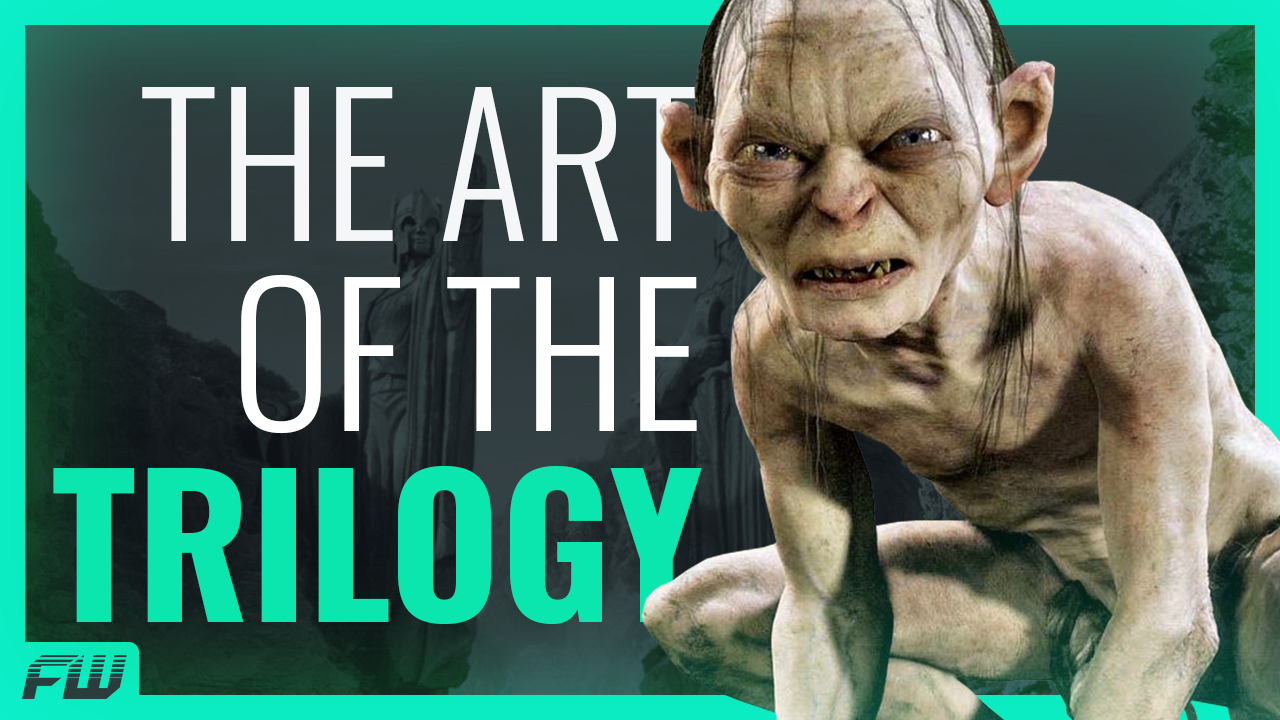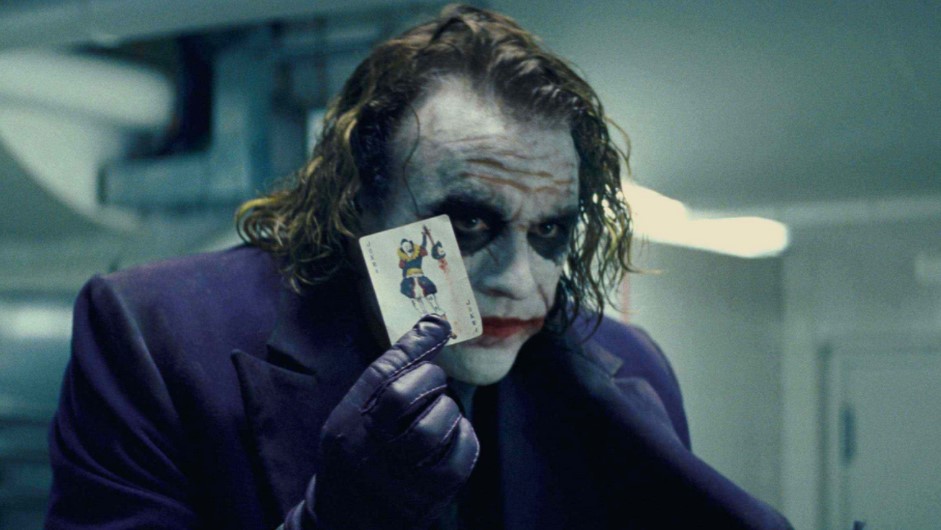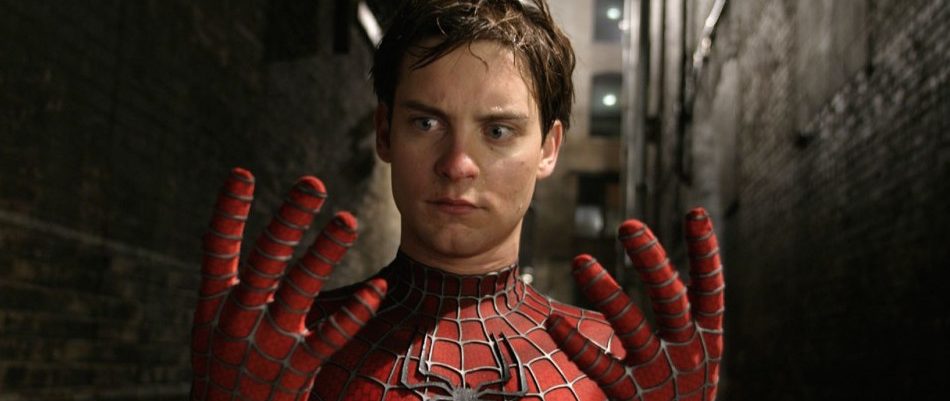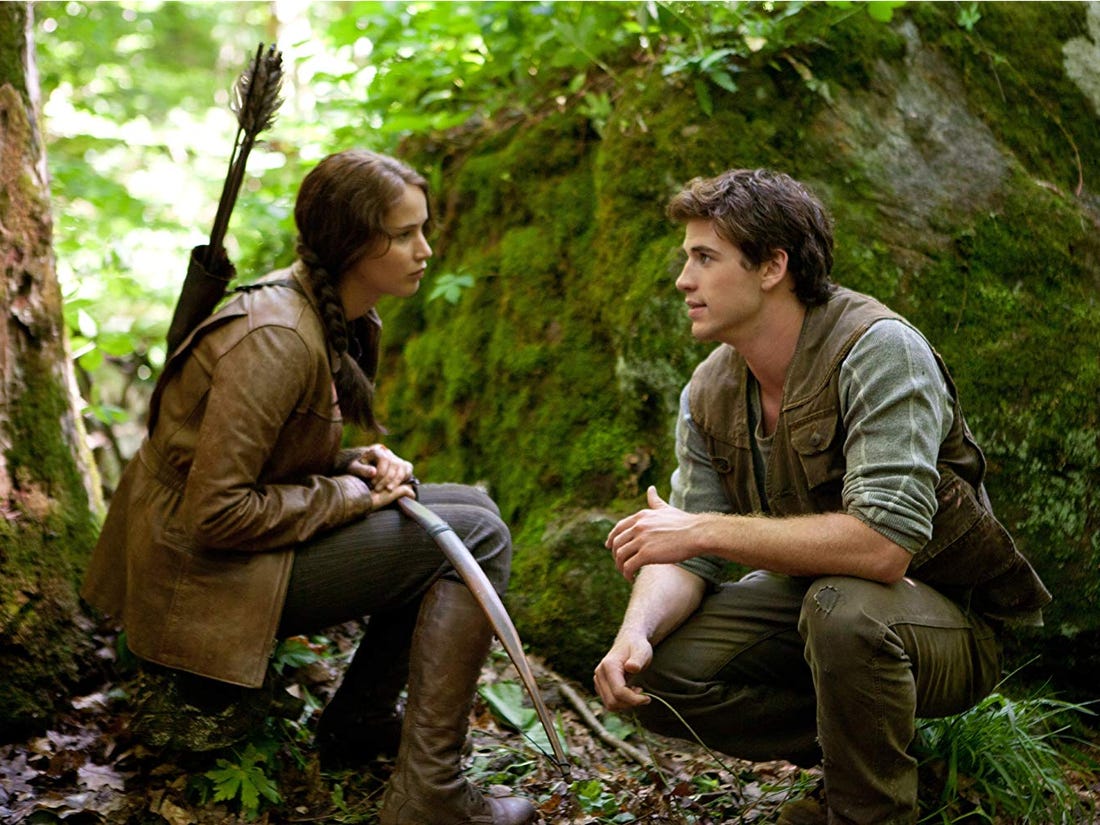A good story is told with a beginning, a middle, and an end. This makes a film trilogy seem like the perfect cinematic formula for storytelling. It may seem like an easy task, but making a great trilogy is more difficult than you may realize. Join us as we examine what makes a great film trilogy.
Check out the video below:
???? Subscribe & hit the Notification Bell so you never miss a video!
This is what most people instantly think of when they hear the words “Film Trilogy.” Peter Jackson’s Lord of the Rings films are masterful examples of powerhouse filmmaking. The characters, performances, cinematography, score, special effects, locations, editing, story arc, everything is just done… perfectly. Between the three films, they earned a box office of over $2.9 billion, 30 Academy Award Nominations, and 17 Academy Award wins. Including a Best Picture win for Return of the King. This was only the second time in history that a sequel had taken home that top honor. The first film to do so being The Godfather Part II, and it’s interesting that both films to achieve this come from trilogies.
From the time we first learn to read and write in elementary school we are taught about beginnings, middles, and ends. The natural flow and progression of a story. Whether it’s literature, theater, television, or cinema the best stories follow this basic three-part structure. So, trilogies are a natural way of telling a complete and cohesive story with an introduction, a body, and a conclusion. Look at the original Star Wars trilogy. A new hope introduces us to an array of characters, a mythical power known as “The Force” and a conflict that threatens the fate of the entire Galaxy. The Empire Strikes Back expands upon everything from the first film. We learn relevant back story information, there is significant character development and the story progresses in meaningful ways. Then in The Return of the Jedi, the story comes to a climactic and satisfying conclusion. Nearly every character gets a fitting ending and the story feels complete. It feels whole.
But success leads to money and money… is a powerful thing. So we got more. Much, much more. This is the issue that trilogies often face. Studios don’t like to let their cash cows retire. We’ve seen it with Indiana Jones, The Borne Identity, and Toy Story. That doesn’t mean that the fourth film tacked on to the end of a trilogy is always going to be bad. Mad Max: Fury Road is arguably the best Mad Max film and was certainly a welcome addition to the franchise. However, it’s a risky move that often proves disastrous.
Related: How To Craft The Perfect Time Travel Movie (VIDEO)
And I’m not saying that a film series with more than three films in it won’t be good. Or even great. Harry Potter and Mission: Impossible had great success with sequels far beyond that. But there is something about a trilogy that’s just a satisfying way of watching a story. When it’s done well, that is. Everybody has their favorite trilogy. The Dark Knight Trilogy, Back to the Future. The Godfather. Sam Raimi’s Evil Dead trilogy. Richard Linklater’s Before Trilogy. But why do these trilogies stand out as the best? Why are they so much better than the vast majority of lackluster film trilogies we get year after year?
Well, that depends on what type of trilogy we’re talking about. There’s the “Serialized Trilogy.” This type follows a long, single-story arc over all three films. Like The Lord of the Rings. Each sequel essentially picks up where the previous one left off and the same story, the same journey… continues.
There’s the “Episodic Trilogy” which sees a complete and total story arc within each film, avoiding major cliffhangers or lead on to the next sequel. Think of Christopher Nolan’s Dark Knight Trilogy. By the completion of each film, Batman has defeated the villain and Gotham is safe once again. For a little while, anyhow.
And then there is the anthology trilogy. This isn’t your typical trilogy. These films aren’t necessarily sequels to one another. There are no recurring characters and the plots may be completely different, but the filmmaker has chosen to present them as a trilogy due to some connection. Usually, that connection is the overall theme and style of the films. Take for example Edgar Wright’s Three Flavors Cornetto Trilogy which started with Shawn of the Dead in 2004, then Hot Fuzz in 2007, and concluded with The World’s End in 2013. Each of the films stars Simon Pegg and Nick Frost, and each of the films tackles a different cinematic genre with a comedic twist. There’s of course the zombie genre, the buddy cop genre, and the alien invasion/science fiction genre. The films are not connected through plot but are undoubtedly connected through their dissecting of stereotypical genre films and their underlying themes. Each of the films touches heavily on the importance of friendship and trust, about growing up as a person and taking on the responsibilities that come with that, and each film features a different flavor of cornetto ice cream to match the genre represented.
Another perfect example is Park Chan-Wook’s Vengeance Trilogy. The Korean filmmaker crafted a series of three dark and violent films that focused on themes of redemption, loss, and, of course, vengeance. Sympathy for Mr. Vengeance, Oldboy, and Lady Vengeance. The most well-known of these being Oldboy which received an American remake from filmmaker Spike Lee. But do yourself a favor, skip the remake and watch the original. In fact, watch the entire trilogy if you haven’t seen it. It’s really spectacular filmmaking.
More often than not a filmmaker does not set out to make an Anthology Trilogy. Instead, they find themselves drawn back to a subject matter that they’ve already explored in a previous film and decide that they have more to say about it. Like Roman Polanski’s Apartment Trilogy or Dario Argento’s Three Mothers Trilogy. The key to a great “Anthology” is finding that theme, that message that the filmmaker wants to convey and doing so through three separate tales that are different enough to stand apart, yet share enough similarity that their connection is absolute and understood.
The most traditional and widely used trilogy is the episodic trilogy. Each film is a complete story with its own beginning, middle, and end. Over the three films there is a larger arc, usually focused on the long-term character development, but the films don’t necessarily have to be watched in order. If I want to watch a Spider-Man film I can put on Sam Raimi’s Spider-Man 2 and I won’t be lost. Even if I haven’t seen the first one. And if I want to watch the third one. Well… I probably won’t want to do that, honestly.
The key to a perfect Episodic Trilogy is to focus on telling a complete story in each film that stands on its own while keeping the films connected through character development and a larger, overarching story. When done correctly you get trilogies like The Before Trilogy. Comprised of Before Sunrise, Before Sunset, and Before Midnight. Most trilogies consist of action films or comic book characters, but here Richard Linklater did something truly different and masterful. A deeply personal love story spanning three films. Starring Ethan Hawke and Julie Delpy, each film takes place over the course of only a few hours. A small, but telling glimpse into the connection of the two lovers. Each of the three installments were filmed and released nine years apart, allowing the audience to follow the couple’s journey over an extended relationship. This relationship, and the character’s evolution within this relationship, is the overarching story and development that connects the films. While each film tells a complete story of an important moment in their growing relationship, like the night they first met.
When done poorly you get trilogies like The Matrix and series like The Hunger Games. I’m aware that The Hunger Games is not a trilogy, however, it should have been. Adapted from a trilogy of young adult novels the source material was already there in the established trilogy platform. But, as I said before, studios like to get as much cash from a successful franchise as they can. The third novel was split into two different feature films and in doing so, neither of those films felt like a complete story. Simply a transition. An overstuffed filler where nothing is resolved, designed to sell more tickets and make more money. Bravo.
Related: How To Build A Cinematic Universe (VIDEO)
But perhaps the most difficult trilogy to complete is the Serialized Trilogy. Primarily due to the fact that it requires an enormous amount of planning and follow-through. This trilogy requires three separate films to fit together so perfectly… so seamlessly that they tell the story of one singular journey. While also working as three separate satisfying viewings. This is not a trilogy that a filmmaker can start and say “We’ll figure it out as we go!” It’s a difficult task and yet it’s one that Peter Jackson has mastered. There is no better example of a serialized trilogy than this (LORD OF THE RINGS), and it’s likely that there never will be. Frodo and the Fellowship’s journey through middle earth is filled with excitement, adventure, sacrifice, and emotion. It is the gold standard of Serialized Trilogies. Probably the gold standard of trilogies, period. Not bad work from the filmmaker who had previously given us Bad Taste and The Frighteners.
So, there you have it. The three types of trilogies and what I think it takes to make a great one. As always that’s just my opinion and I’d love to hear yours in the comments. What’s your favorite trilogy? Don’t forget to like the video if you could and subscribe. Thanks a lot, and I’ll see you next time.
Follow us for more entertainment coverage on Facebook, Twitter, Instagram, and YouTube.





